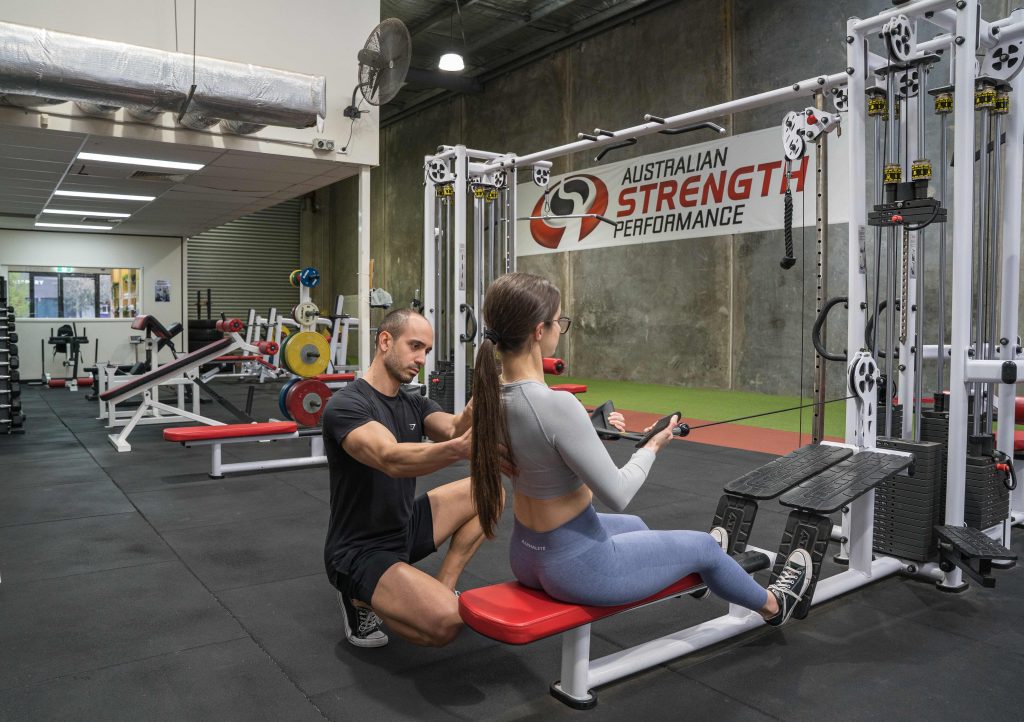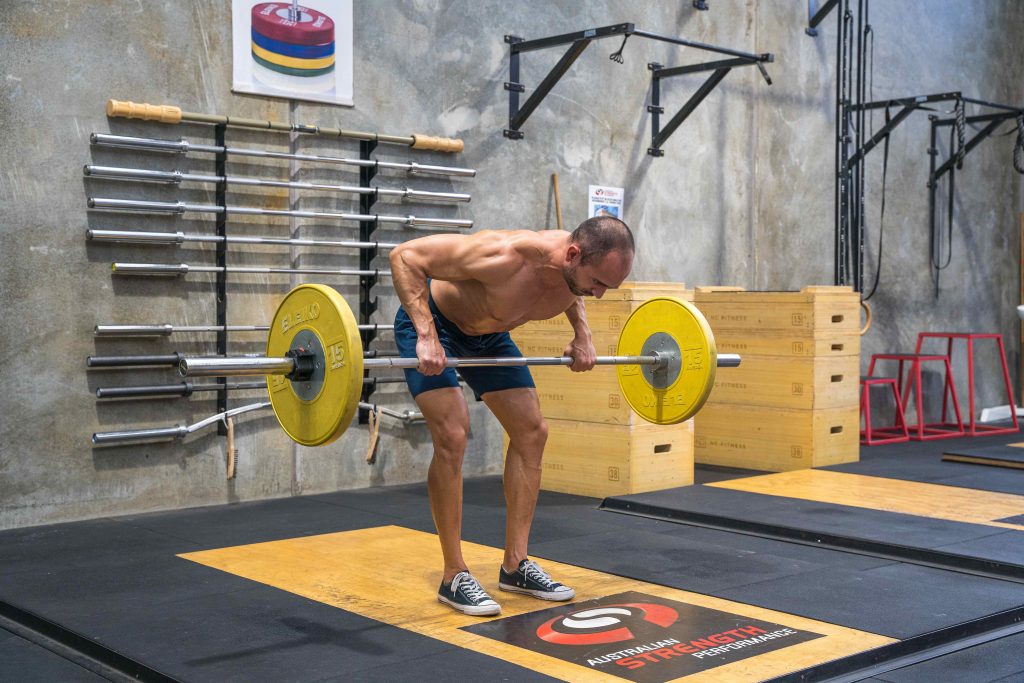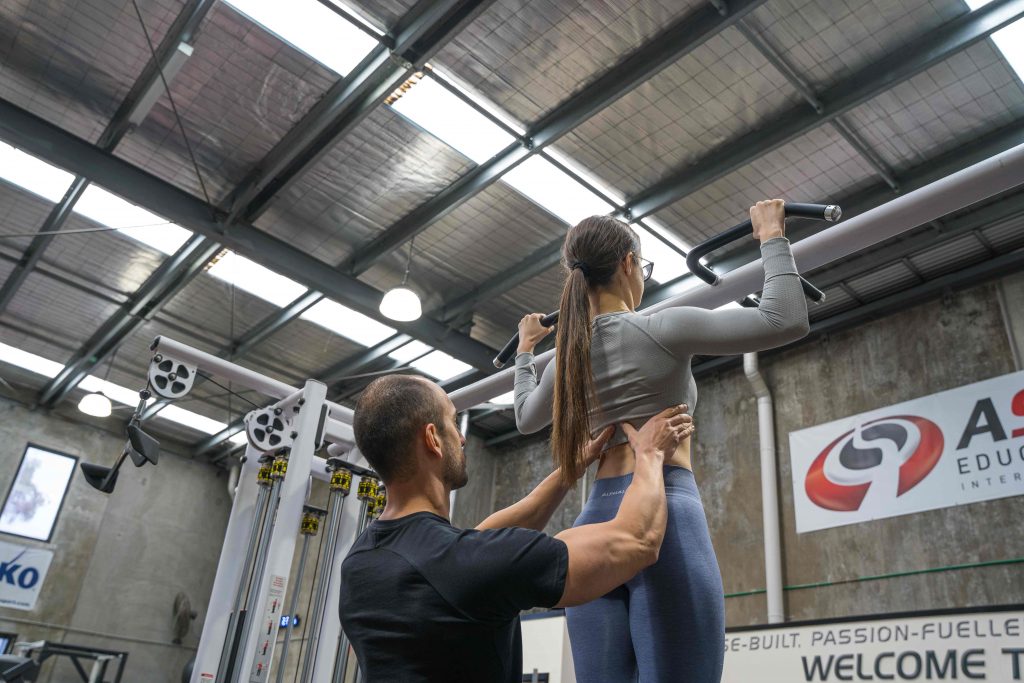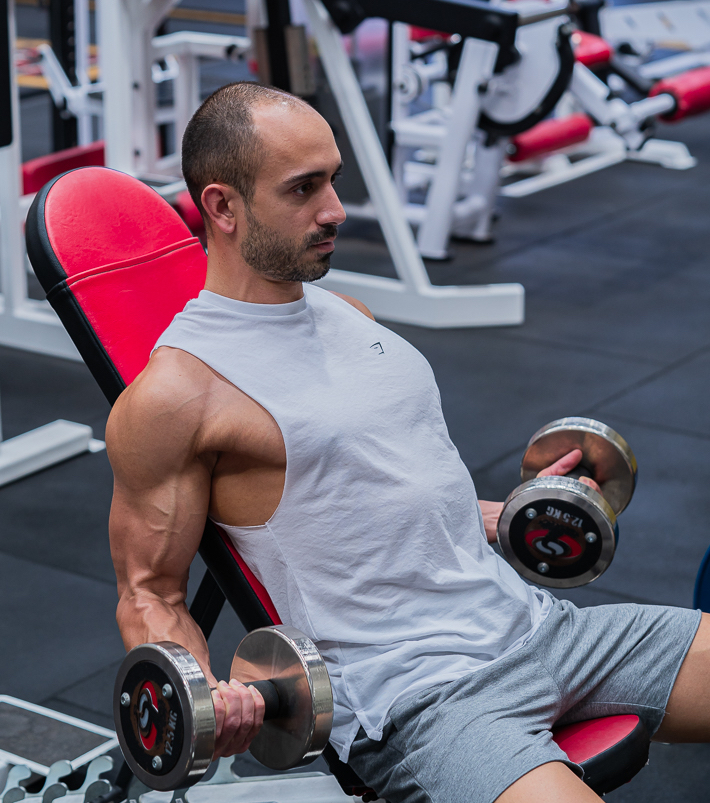Tell us a little bit about you
Hi! My name is Patrick Hammes. I coach at Australian Strength Performance in Melbourne, Australia with Benjamin Siong and the rest of the amazing team! I specialise in body composition; helping clients lose fat, put on muscle and get into the shape they’re after. Perhaps more importantly, I also help clients gain confidence in themselves, the way they train and create long term lifestyle and nutrition habits that facilitate the change they’re after. Fun fact: like many readers here, I grew up in Singapore.
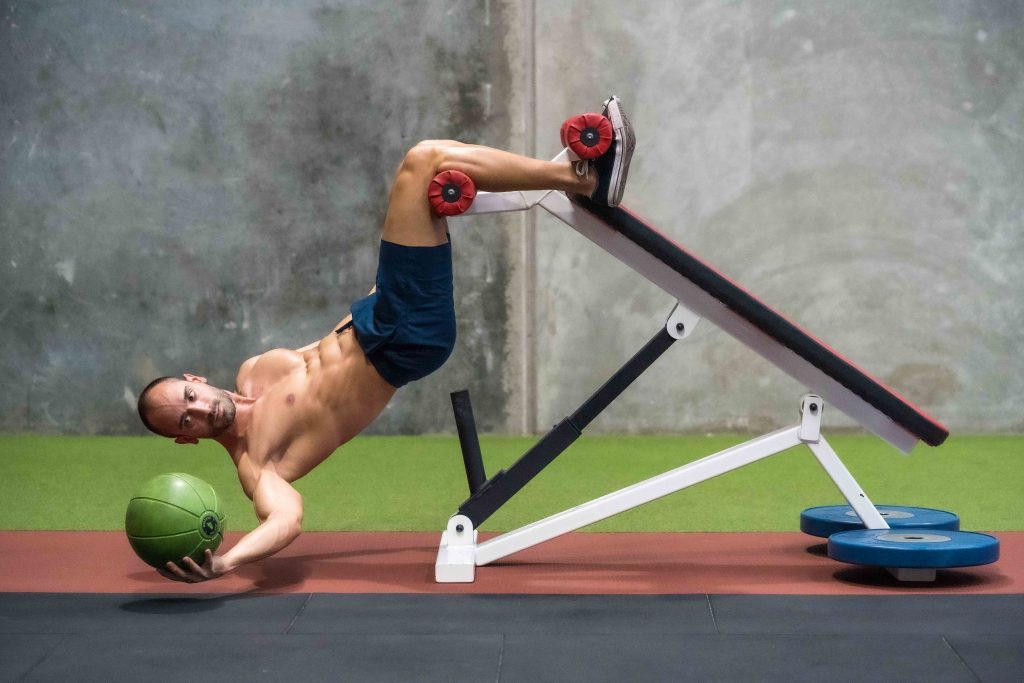
What made you pursue the career path you are now on? What was the main catalyst?
I was always a skinny kid growing up and when I hit 18 I decided to get a personal trainer after getting zero results training with my friends at the school gym. I got great results very quickly with my trainer and became obsessed—or as I like to say, passionate—about everything related to training. Fitness and nutrition became a priority in my life and my friends knew this. One night while having drinks one of my friends asked me “why don’t you become a personal trainer? You’re clearly passionate about fitness.” At the time I didn’t think much of this question as I was studying advertising and planning to get into the corporate world, but the more I got exposed to the advertising world and the lifestyle that followed, the more I realised it wasn’t for me. My friend’s question kept coming back to me. Eventually, I figured “why not? This is my true passion and what I enjoy. If I’m passionate about the work I do, then at least I’ll be happy doing it and will find a way to be successful at it.”
What does your typical day look like for you? Is it as fun and smooth as it often looks?
I usually wake up at 5.15am and start at 6am and finish at 7.30pm. As many coaches know, the “before work” and “after work” hours tend to be busiest, with some clients scattered throughout the day. I’ll usually have about 8+ hours’ worth of clients in a day (max 12 hours) and aim to keep 1.5 hours free to train myself, and of course some time for breakfast and lunch. If the day isn’t too busy with clients I’ll take some time to do admin work such as program writing, session tracking, client check-ins, responding to e-mails, etc. Most days are quite smooth, but often feels quite rushed trying to fit everything in. The end of the day is often quite exhausting, but I’ll often find myself having to do some admin work at home before going to bed. Do I find my days fun? Overall, yes! I love what I do, so no complaints here!
How did recent advances in tech & innovation helped you elevate your career, what are some examples? Is it always positive?
The science and research in training and nutrition has advanced immensely in recent years, which has been a huge boon to the industry and my coaching. It seems that each month we now have more and more research coming out to answer some of the industry’s most burning questions: what exercises are best for hypertrophying the glutes? Does time under tension matter and how can it be applied better? How many sets do you need to do per muscle group to get an effective workout? What counts as an effective workout?
Before the surge in research much of the industry relied on trial and error to see what works, or anecdotal evidence, mainly from body builders. Many high-level coaches would also have to make inferences from other research. For example, if workout style “X” elevates testosterone more than workout style “Y”, then we can infer that workout style “X” is more beneficial for hypertrophy. But is it really? Now we’re having more and more of these questions answered.
One caveat with research, however, is that research tends to look at what works on average, but people aren’t averages. Each client is different from the next with different life stressors, athletic ability, genetics, etc. So, while it’s important to know and understand what’s happening with the latest studies, it’s also important to know how to apply things appropriately from one client to the next.
How do you define success, and what are some of the challenges you had to overcome?
First and foremost, getting results, whatever that means for the client. Most clients come for physical changes, but others may come for lifestyle or health changes. Delivering the results is what we’re paid for.
To me, having good overall client retention is an important factor. If clients keep leaving, even if you’re getting them results, then something is wrong. (I guess you could blame inflation…)
If you want to have a successful business then being good with people is almost as important, if not more important than the actual training itself. Improving people skills, the way you provide feedback, understanding the body language you give off, your tone of voice, how you make conversation, etc. are all huge factors in the coaching experience.
Who do you look up to in terms of learning from and who’s your ‘idol’?
I would be remiss if I didn’t mention Charles Poliquin. His teachings were a huge part of my development early in my career, and much of what I have learned I still carry to this day.
Benjamin Siong has also been one of my biggest influences and continues to be. I was fortunate enough to start under his wing from day 1 of being a coach (about 10 years ago) and consider myself very privileged to still be working with and learning from him.
Aside from that, I wouldn’t say I have one particular ‘idol’. I think the industry has many great coaches/educators to learn from, you just need to know where to look. For me, some of my favourites include Menno Henselman, Sebastian Oreb, Bret Contreras, Jeff Nippard, Mike Israetel, and many more. What’s important to remember, however, is that there are many ways and styles to achieve the same result. It’s important not to get too dogmatic or locked into one way of thinking; keep an open mind, learn as much as you can, and apply what you think is best based on the context of your client.
What are your biggest challenges to overcome with your clients?
Achieving good compliance with lifestyle and nutrition recommendations tends to be the most difficult aspect of coaching. As many coaches know, the training is the easiest part, it’s what the client does outside of the training session that can be difficult. Some habits can be so deeply ingrained for many clients, and when these habits go against their goals, progress slows. I’ve found the best and longest-lasting way to change client habits is to go slow with the changes (unless there’s a tight deadline like a wedding, photoshoot or fitness event, then there’s no time to go slow). Going hard with lifestyle, nutrition and training changes tends to burn people out quickly. At the end of the day, long-term results comes down to consistency and making gradual changes in habits. It’s also important to let clients know that coming to the gym isn’t about making a quick fix or quick transformation, it’s about creating healthy lifelong habits.
What do you enjoy most about your career?
It’s going to sound cliché but seeing clients progress is a great feeling. When I talk about progress, I don’t just mean physical progress, but also progress with creating better habits, feeling better day to day, sleeping better, reducing stress, learning better ways to cook and eat for their goals, etc. I also enjoy the interaction I get with my clients. I’m an introvert at heart, but when you have a good set of clients it really makes the work that much more enjoyable.
Outside of face-to-face coaching, I love learning more and more about how the body works and responds to different exercises and training methods.
What products and tools do you like to use in your practice?
There’s no fancy electronics or gadgets here. We use the basics, but we aim to get the best brands and designs available. You’ll find Eleiko plates and bars, Watson dumbbells, Atlantis cables, machines, racks for squats, bench, etc. and a modest range of strong man equipment. We do, however, pride ourselves on having a wide range of grip attachments for cables as well as different styles of barbells to achieve different training stimuli and cater to specific athletes or client goals. At the end of the day, however, the basics will cover 99% of client goals (the same goes for exercises), anything extra can be good to have for a bit of variation, fun, or targeting a client’s specific needs.
What do you do on your spare time? How do you invest your time?
I love indoor houseplants. It’s an addiction. I probably start my day saying good morning to the plants and staring at them for longer than I need to. Have they grown a new leaf overnight? No, but I’ll stare anyway. I’ll also end my day staring at the plants. If I have time during the day I may also stare at the plants.
I also enjoy reading or learning something new about training and nutrition. This might be doing an online course or reading a book. Right now I’m finishing up Bret Contreras’ Glute Lab: The Art and Science of Strength and Physique Training, which I highly recommend.
What does your training regimen look like?
My current phase has me training 5 days a week with 2 lower body days (1 squat focus with accessories and the other deadlift focus with accessories), 2 upper push days and 1 upper pull day. My upper pull (back) day is not a priority, so currently that’s on a once a week maintenance routine.
Due to my tight schedule I keep my workouts short. I’ll start with 3 sets of the main exercise I want to get stronger at (e.g. squat, bench, deadlifts, pull ups) and follow that up with 2-3 complimentary exercises for my goals for 2-3 sets (e.g. for lower body that may be Bulgarian split squats/hamstring curls/hip thrusts, etc.) I like to finish with 3 sets of 1 or 2 remedial exercises to prevent injuries and keep the joints strong (e.g. external rotations, scap retractions, Poliquin step ups, etc.)
Ideally, everything is done within 1 hour, including warm up. When time allows I think it’s beneficial to health to add 2 or 3 short cardio sessions a week, but I’m not always able to do this.
How relevant are fitness qualifications/certification today?
I find that fitness certifications to allow work in the industry tend to cover only the basics. Of course, this is important, but to excel in the industry takes a lot of further study, whether it’s through courses, workshops, reading, etc. In my opinion, some of the most beneficial workshops/courses are face-to-face with a practical component; it’s one thing to learn through reading or watching, but experiencing something for yourself is hugely beneficial.
What is your preferred method of encouragement towards clients?
My approach is always through positive encouragement/reinforcement, while correcting/critiquing in a positive and non-insulting manner. Of course, how positive I need to be, or how direct I can be depends on the client. Some need a more comforting tone while others are fine with a more direct (but not insulting) tone.
Most of my clients are general population clients. They tend to be office workers, mums, dads, students, etc. with the stresses of “real life”. My goal is not to make them more stressed or miserable, but to train them well and at a difficulty that is appropriate for them. In the past, my approach was to flog and yell at clients; train them hard and leave them dead at the end of the session. This can work short term, but I’ve found clients recover better, train better and get better results when you consider how the stress of training and recovery period fits into the rest of their lifestyle.
If I’m training someone for competition, I’m usually less nice.
What are some of your top tips to pass to current and/or emerging Exercise Professionals?
- First and foremost, respect your client’s time. Be on time and look presentable. Don’t eat or chit chat to other people during a session. Be attentive to your client, not other things happening around you. Check your breath, especially if you’re spotting bicep curls.
- It helps to specialise your coaching practice or have a particular target market of clients, but if you’re starting in the industry and wondering what area to specialise in, don’t be too picky with what clients you take. One, you’ll need the income, and two, you’ll only learn what group of clients you like to train after trying different things.
- Keep learning! This can be a course, workshop or reading from credible educators in the industry. Most importantly, try what you’ve learned on yourself before giving it to clients.
- Film your lifts. As a coach you want to make sure you train with good form.
- Keep an open mind. One exercise that seems completely ridiculous for one client might be a suitable exercise for another client. Everyone is different. Same goes for nutrition.
- If you’re looking to get into online coaching, I would recommend starting with face-to-face clients first, if possible. What you learn from 1 year of coaching face-to-face will far exceed what you learn in many years of online coaching. This will greatly benefit your online practice.
- Never, ever, ever show frustration if a client is struggling to learn an exercise. It will only make them feel worse and more frustrated. If you need to take a deep breath in, don’t let them see that either; the client will pick up that you’re frustrated with them.


